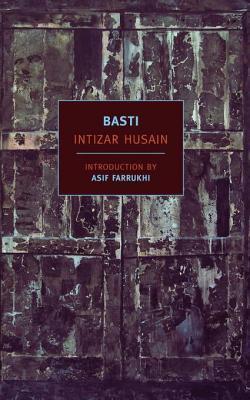What do you think?
Rate this book


224 pages, Paperback
First published January 1, 1979
My first and last journey with her. We left Vyaspur before dawn, but when the lorry reached Bulandshahr it was already afternoon... As we crossed over the Ganges on the bridge, darkness fell. Somehow, at some point, her hand came into mine. From then on I was unconcerned about the dust and ruts in the road, and about when the lorry would arrive in Rupnagar, and even about whether it would arrive at allIsn't this the truth perfectly, how that half-secret love can swallow your whole self, how some small touch, even a word, can obliterate time and dissolve every thought in your head...What I loved about this book was, above all, its tenderness. Like other borderland literature, Basti renders lines drawn on a map as an emotional geography that blurs them. Here you will not find a history that steps from event to event explaining the cause and effect of each. We don't hear news, only that the beloved one reads it, or that it is discussed by friends in the cafe... I don't mean that politics or history are sidestepped - rather the opposite, we are inside them in a way that makes it impossible to look down on the situation from above.
"Yar!" He paused, then said somewhat hesitantly, "Yar, was it good that Pakistan was created?"After this fatal question is asked, the text starts to fragment; Zakir becomes a stranger to himself; he cannot even walk without thinking there is something wrong with his walk, that he is losing his identity. Finally some coherence returns when he hears from his friend Surendar in Delhi about Sabirah (the one he loves).
Yar, how strange it is that the same town becomes for one of its inhabitants, who has left the country, more meaningful than before, so that he dreams about it; while for another inhabitant all its meaning disappears, so that even though [s]he's in the same country, [s]he never feels any desire to see the town againThe town where he and Sabirah lived as children is deeply important to Zakir, but Sabirah, who stayed in India while her family left, feels differently. Here I feel not only the loss of the beloved place, but the loss he feels in that discontinuity with her, that something precious to him has been thrown away... If Rupnagar appears idyllic in his memory, then Lahore (by implication, never mentioned) appears nightmarish in a time of war, but tenderness makes it home:
I can do nothing else for this city, but I can pray, and I do pray. In my mind is a prayer for Rupnagar and its people as well, for I can no longer imagine Rupnagar apart from this city. Rupnagar and this city have merged together inside me, and become one town.Inside Zakir, the broken world can begin to be repaired... It seems to me that Hussein is refusing to partition his own self by drawing on Hindu and Buddhist sources as well as the Quran and Iranian poets. When the slogan "Crush India" appears on taxis it is startling, because we have not left India in spirit, the movement, the crossing, is from a child's paradise to adult sorrow and loss... the mood is grief above all. But love is the bridge; friendship ignores religious differences and nation-state boundaries entirely. Love dissolves the border like chalk-pictures erased by rain. Love is primary in Basti and everything flows from it, even when it is only a shadow of a memory of a touch...